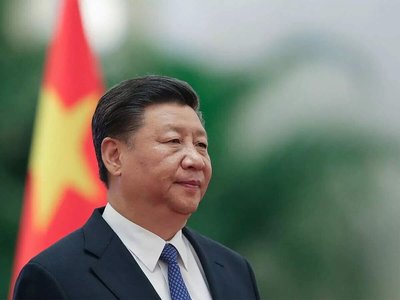France’s Wealthy Shift Billions to Luxembourg and Switzerland Amid Tax and Political Turmoil
Following snap elections and proposed high-earner levies, French high-net-worth individuals are investing a record €13.8 billion into Luxembourg lifeco policies and moving capital to Switzerland.
French entrepreneurs and affluent families have accelerated transfers of assets to Luxembourg and Switzerland, responding to growing political instability and tax pressure in France.
Since the snap parliamentary elections of June 2024 triggered a fractured National Assembly and successive governments, the uncertainty has spurred high-net-worth individuals (HNWIs) to seek safer financial jurisdictions.
Data from Luxembourg’s insurance regulator shows that French investors’ placements in Luxembourg-based life-insurance products rose by more than fifty-eight per cent in 2024 to a record €13.8 billion.
Wealth-management firms in Paris and Geneva describe enquiries linked to Luxembourg doubling after the election outcome, and the flow into Swiss vehicles described as “crazy” given its reputation for stability and discreet tax structures.
The trend occurs as the French government under Prime Minister Sébastien Lecornu, aligned with President Emmanuel Macron, pursues budget-deficit relief measures including new levies on holding companies, one-off surcharges on top earners and proposed wealth taxes targeting the very affluent.
While the government has so far resisted reinstating a broad wealth tax, the measures signal a shift in fiscal direction, raising alarms among France’s richest residents.
Wealth managers say the move of funds to Luxembourg often precedes eventual relocation or establishes “pre-exit” structures.
Though depositors must still declare interest earned abroad, placing assets in Luxembourg gives a psychological and administrative advantage ahead of potential emigration.
Luxembourg offers flexible structures such as life-insurance contracts and the “Société de gestion de patrimoine familial” vehicle, which remain attractive despite recent tightening of rules.
Switzerland retains appeal not only for its favorable tax alternatives—such as the lump-sum tax regime—but also for its political stability.
Some French families are exploring migration paths there, citing factors beyond taxation including consistency of governance and wealth-safe havens.
Experts say the implications for France’s economy are significant: capital flight at this scale reduces domestic investment, weakens capital markets and further pressures fiscal revenues.
For Luxembourg and Switzerland, the influx reinforces their roles as global wealth hubs and underscores the growing relationship between tax-policy shifts, political risk and the global migration of money.
The flight is not purely about tax rates but about certainty, structure and continuity in an era of rapid political change in France.
Since the snap parliamentary elections of June 2024 triggered a fractured National Assembly and successive governments, the uncertainty has spurred high-net-worth individuals (HNWIs) to seek safer financial jurisdictions.
Data from Luxembourg’s insurance regulator shows that French investors’ placements in Luxembourg-based life-insurance products rose by more than fifty-eight per cent in 2024 to a record €13.8 billion.
Wealth-management firms in Paris and Geneva describe enquiries linked to Luxembourg doubling after the election outcome, and the flow into Swiss vehicles described as “crazy” given its reputation for stability and discreet tax structures.
The trend occurs as the French government under Prime Minister Sébastien Lecornu, aligned with President Emmanuel Macron, pursues budget-deficit relief measures including new levies on holding companies, one-off surcharges on top earners and proposed wealth taxes targeting the very affluent.
While the government has so far resisted reinstating a broad wealth tax, the measures signal a shift in fiscal direction, raising alarms among France’s richest residents.
Wealth managers say the move of funds to Luxembourg often precedes eventual relocation or establishes “pre-exit” structures.
Though depositors must still declare interest earned abroad, placing assets in Luxembourg gives a psychological and administrative advantage ahead of potential emigration.
Luxembourg offers flexible structures such as life-insurance contracts and the “Société de gestion de patrimoine familial” vehicle, which remain attractive despite recent tightening of rules.
Switzerland retains appeal not only for its favorable tax alternatives—such as the lump-sum tax regime—but also for its political stability.
Some French families are exploring migration paths there, citing factors beyond taxation including consistency of governance and wealth-safe havens.
Experts say the implications for France’s economy are significant: capital flight at this scale reduces domestic investment, weakens capital markets and further pressures fiscal revenues.
For Luxembourg and Switzerland, the influx reinforces their roles as global wealth hubs and underscores the growing relationship between tax-policy shifts, political risk and the global migration of money.
The flight is not purely about tax rates but about certainty, structure and continuity in an era of rapid political change in France.










